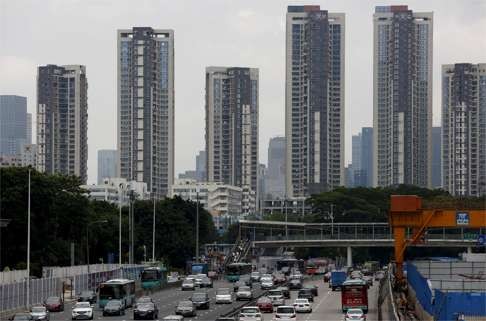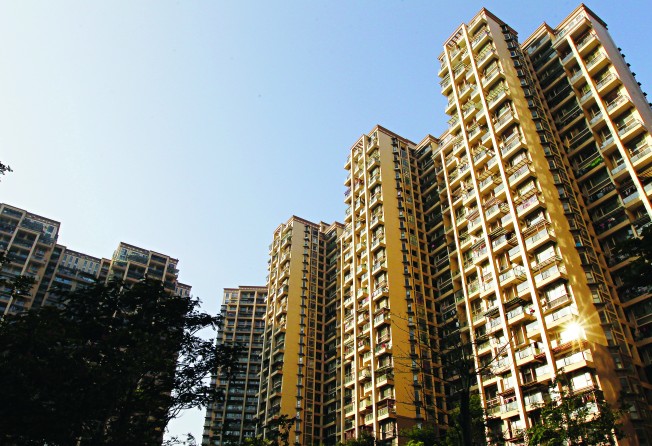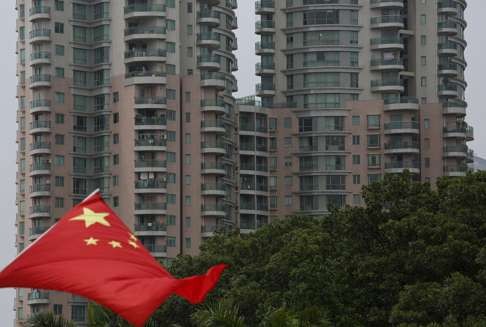
New tightened Shenzhen home rules to curb property bubble might hit Hong Kong buyers
Down payments are being raised for second home purchases and non-local buyers will be required to pay social security for three years

A raft of new measures to dampen the hot Shenzhen property market is likely to make it harder for non-residents, including those from Hong Kong, to purchase a home there, but it remains unclear if the package will cool the market, analysts say.
The Shenzhen municipal government announced the new rules late on Friday. They included higher mortgage down payments and a more stringent threshold for home purchases by non-locals. They came into immediate effect.
Shenzhen banks now require a 40 per cent down payment for purchasers of second homes if a first home loan is paid off, compared to the previous 30 per cent.
Officials also raised require- ments for non-local residents buying homes in Shenzhen. They are no longer eligible to buy a flat unless they have made social security payments for three years, which means they must have worked in the city for at least three years – up from the current one year.
The impact of the changes is unlikely to be great on Hong Kong. Centaline Group’s research centre in Shenzhen reported that in the past two years, about 4 per cent of all homes sold in Shenzhen were bought by Hongkongers. However, it said the ratio was significantly higher in areas closer to the border.
The central government has been stepping up action recently to clamp down on speculation to prevent a market crash. Last Thursday, Premier Li Keqiang (李克強 ) pledged at the Boao Forum in Hainan (海南 ) that the market would be stabilised.
New home prices in Shenzhen surged 57.8 per cent in the past year. The city’s price-to-income ratio has jumped to 23.2, beating the figure of 15.6 in Hong Kong – long believed to be the most expensive market in the world.
Everyone is watching instead of rushing to the market now. There is a bubble and no one wants to be the last buyer
“Everyone is watching instead of rushing to the market now. There is a bubble and no one wants to be the last buyer,” said Carrie Song, a Hongkonger who lives in Shenzhen.
To crack down on speculative practices, Shenzhen officials earlier this month barred crowdfunding and the use of down-payment loan products offered by developers, agencies and financial institutions to encourage buyers.
Nevertheless, some market watchers think the latest rules will have a limited effect in reining in price rises.
“The cost [of a down payment] is only up 10 per cent. There is so much money in a financial hub like Shenzhen that people won’t mind paying a little bit more,” said Thomas Lam, head of valuation and consultancy at Knight Frank, adding he thought investors from other cities, including Hong Kong, would find it more difficult to buy a flat in Shenzhen.
“Shenzhen is an immigrant city. The new policy will definitely affect those who are new to Shenzhen in the past two years,” said Andy Lee, the Shenzhen-based chief executive of Centaline Propery Agency for southern China.
“What’s more important is the impact on market sentiment. With recent intensive government cooling measures, market expectations have begun to change,” Lee said, adding that he expected monthly new home transactions in Shenzhen to drop by up to a half from the peak.
There is so much money in a financial hub like Shenzhen that people won’t mind paying a little bit more
He said it was too early to say if Shenzhen’s home prices would decline as the country currently had ample liquidity after six interest rate cuts. It would depend on future credit policy, he said.
Shenzhen’s latest measures are much milder than those adopted by Shanghai, which raised the down payment for a second home to 70 per cent for most homes.
The Communist Party’s flagship newspaper, People’s Daily, has added its voice to debate over the overheating housing market.
It said yesterday that the mainland economy did not need “real estate speculators” as any speculation through financial instruments would not only bring investors huge risks, but also hurt healthy economic development.
